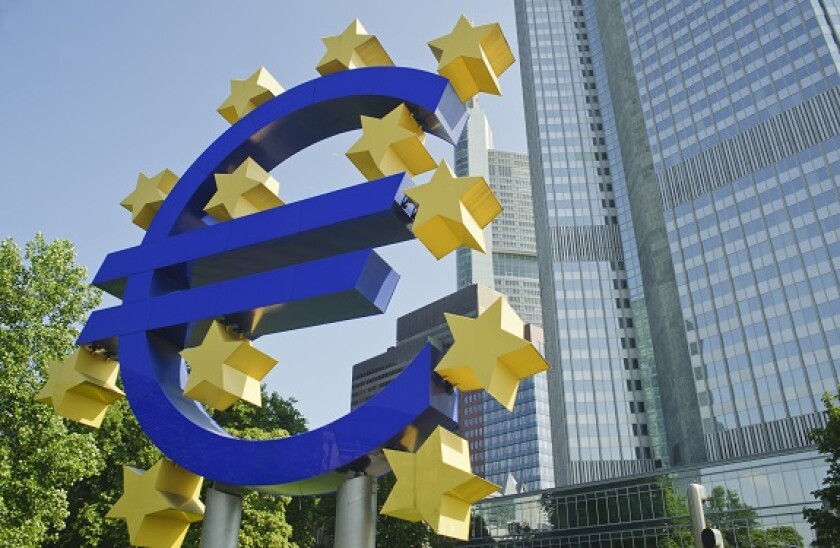In the Pandemic Emergency Purchase Programme (Pepp), the European Central Bank has, perhaps accidentally, given itself an elegant way out of the straight jacket of its own largess. Now, it needs to make sure it does not miss the exit.
Net purchases made through the €1.875tr Pepp scheme are coming to an end in March. Money freed up as debt matures will still be put to use, much to the benefit of eurozone issuers that do not qualify for the ECB’s other asset purchase programmes (γεια σας, Greece!)
But perhaps more importantly, the gradual wind down of pandemic-related stimulus gives the ECB a golden opportunity to wriggle out of the corner it had backed itself into through quantitative easing without causing too much damage.
Financial markets react quickly to changes in sentiment, but their preferred state is really inertia. Rather than overhauling legacy technology, participants in some markets instead accept fax machines as an appropriate way to communicate in the 21st century. Bond investors responsible for trillions of euros, once they have convinced themselves that buying negative yielding 10 year debt is in any way reasonable, struggle to remember why it is not.
Winding down the ECB’s Asset Purchase Programme is going to require one of the biggest ever shifts in market mentality.
Luckily for the central bank, the Pepp that it introduced in response to the specific threat posed by Covid-19 can act as an appetiser, beginning to swing the powerful inertia of the market gently around to favour more normal monetary policy.
As Pepp comes to an end, the ECB will temporarily ramp up the APP to smooth the transition, but not enough to completely make up for the shortfall. There will be a gap of around €30bn in April and this will increase as the APP tapers back down to €20bn a month.
But by then, the market will be getting used to lower purchases. Without the ECB backstopping every investment grade offering in Europe, yields will be rising as investors demand a better return. Nature, as they say, will be healing.
Don’t dawdle
The ECB will need to grasp this chance with both hands and use it to move back decisively towards normal policy, and it needs to communicate this intention more clearly than it has until now. The US Federal Reserve and Bank of England have both come out fighting against inflation harder than the ECB, which has indicated there will be no rate rises until 2023.
Of course, there is a risk that Covid flares up again strongly enough to merit further intervention. But there is nothing to stop the ECB leaving the door open to this possibility, as it has done, by telling the markets that it can start the Pepp printing presses again at any time.
Instead of dithering, the ECB should use the end of Pepp to kickstart its return to normality. Then the markets can return, hopefully, to a place where risk is properly compensated and investment decisions do not come down to whether the ECB is buying or not.

